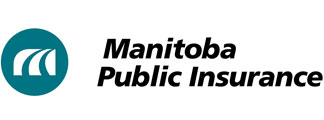Types of Autopac Insurance
All Purpose
An All Purpose passenger vehicle is used for pleasure driving and for driving to or from–or part way to or from–work or school, or for business purposes.
Pleasure
A pleasure passenger vehicle can’t be used for any business purposes. It can only be driven to or from–or part way to or from–work or school up to 4 days in one month, and not more than 1,609 km (1,000 miles) to or from work or school during a rating term. It can be used to drive dependants to and from school, without limits. Students can’t drive a vehicle to school regularly on pleasure use.
Common Carrier
A common carrier passenger vehicle (local) is used by a courier or common carrier within a city or municipality, or for any other delivery purposes in connection with a business, trade or occupation, more than four days in one month or more than 1,609 km (1,000 miles) during a registration period.
Liability
Enhanced Liability coverage is inexpensive and can be bought in varying amounts from $1,000,000 to $10,000,000. This coverage provides you protection for:
- Damages to another vehicle or other property in Manitoba.
- Injuries to a person, or damages to another vehicle or other property outside Manitoba but within Canada and the United States.
If your passenger vehicle, light truck (gross vehicle weight of 4,540 kgs or less) or motorcycle, is used for ‘Pleasure’ only and is at least 25 years old it qualifies for the Collector Vehicle Program. Give us a call and we can get your vehicle enrolled in this program.
Lay up coverage – If you are not using your vehicle for an extended period of time you can get vehicle to lay-up coverage. Lay-up provides for losses such as fire, theft and vandalism, hail and lightning—excluding road use. There is no coverage for collision damage, claims others make against you, vehicles stored outside Manitoba or vehicles stored on public roadways.
Auto protection
Purchasing a new vehicle can be expensive. To protect the value of your vehicle you can purchase this optional coverage. Most privately owned, new and late-model cars, SUVs, light trucks, motorcycles, mopeds and motorhomes qualify. The vehicle must be either brand new or, if used, no older than one model year old.
New Auto Protection
New vehicle protection covers you against the depreciation of your vehicle if the vehicle is written off. This will provide you coverage for the purchase price plus inflation of the vehicle less the outstanding amount on your trade-in, service contracts, warranties or insurance. This coverage is available for you for up to two years.
Leased Auto Protection
Leased Vehicle Protection covers your down payment and any trade-in allowance on the vehicle you’ve leased for up to two years, if it’s written off. Leased Vehicle Protection is available for new and late-model leases.
Buying a new or used car?
Having the proper documentation when you come to get it registered will ensure quick and hassle free transaction.
Purchasing a Vehicle through a Dealer
Used vehicle purchases through a dealer must include a Bill of Sale and Transfer of Ownership Document (TOD) which must be signed by both purchaser(s) and seller(s) and have the correct odometer reading. Dealers must also give buyers a new Certificate of Inspection (COI).
If the vehicle is brand new, the dealership must provide a New Vehicle Information Statement (NVIS) as well as the Bill of Sale. In most cases new vehicles do not require a COI or a TOD.
Purchasing a Vehicle through a Private Seller
Private vehicle purchases also need to include a Bill of Sale, Transfer of Ownership (TOD) signed by both the seller(s) and purchaser(s) along with the current odometer reading. A valid vehicle safety is required before the vehicle can be registered in Manitoba. You may need to have a safety done if the safety is not current or valid on the vehicle that you purchased. Check the bottom right corner of the registration card to see if a new safety is required.
Remember that it is very important to have all the documents signed by everyone who is involved with the purchase and sale of the vehicle. A Bill of Sale should include the date of the sale, the full vehicle description including year, make, model, serial number, the purchase price, as well as the names, signatures and addresses of the purchaser(s) and seller(s). If you require, we have a blank Bills of Sale available. If the vehicle is owned by two people, then BOTH signatures must be on all documents. Also, when you purchase a vehicle privately, only the PST will have to be paid when you register the vehicle.
